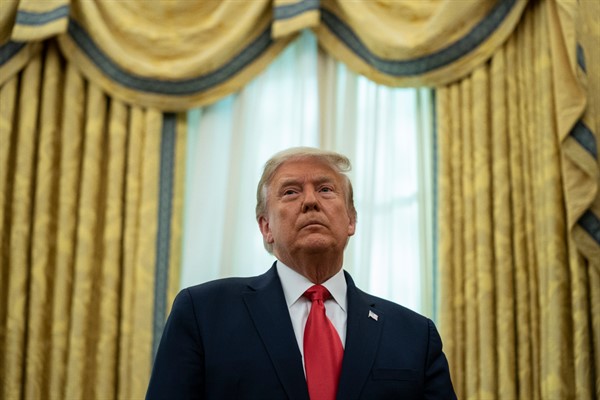Priced at about $741 billion and thousands of pages long, the 2021 National Defense Authorization Act has a little holiday cheer for everyone inside Washington’s Beltway. There are bold moves on cyber strategy, artificial intelligence, 5G—and even a modest pay raise for members of the military. All that, however, is nothing compared to the biggest change the defense spending bill would bring for the future of national security. If signed into law, the bill, also known as the NDAA, would effectively outlaw anonymous shell companies in the United States.
The only problem—surprise, surprise—is President Donald Trump. His parting gift as he prepares to exit the White House may be to prevent the passage of one of the most sweeping anti-corruption measures in recent American history. Trump has threatened to veto the NDAA if Congress fails to insert an amendment that would repeal liability protections for tech firms like Twitter and Facebook. He also wants Congress to strip out current provisions in the bill that would lead to the renaming of U.S. military bases named after Confederate soldiers.
Trump says it’s all about protecting American national security interests. His tweeted tantrums in recent weeks have been filled with all manner of grievance against Twitter and Facebook for their alleged bias against conservative causes. His defense of all things Confederate is, of course, well known.

